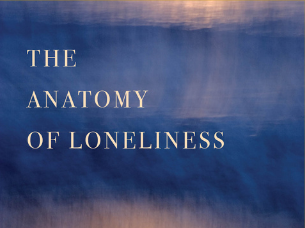
Professor Chikako-de Silva’s monograph, The Anatomy of Loneliness: Suicide, Social Connection, and the Search for Relational Meaning in Contemporary Japan received the 2022 Francis L. K. Hsu Prize and, as an honorable mention, was one of the six books awarded the Victor Turner Prize. See the full reviews below.
The Francis L. K. Hsu Prize is given to the book that was judged to have made the most significant contribution to the field of Anthropology of East Asia and is awarded by the American Anthropological Association’s Society for East Asian Anthropology. In The Anatomy of Loneliness, Ozawa-de Silva gracefully threads the needle of writing for a non-specialist audience while adding to conversations about loneliness, suicide, and social connection in the anthropology of East Asia. Moreover, she writes about the particularities of a social phenomenon in Japan in ways that speak to global experiences of loneliness as a part of the human condition, but one exacerbated by the structures of modern life and neoliberal policies. To do so, the book draws together current research in anthropology, sociology, psychology, and neuroscience/developmental biology, to theorize the anatomy of loneliness as both individual and social. The chapters chart Ozawa-de Silva’s research journey from a study of the dramatic increase in suicides in Japan beginning in 1998, to her discovery that a lack of social connection, loneliness, and a sense of meaning in life better reflected the stories she encountered than the assumed economic or mental health causes. In order to study suicide ethnographically, the book analyses first, second, and third person accounts seen through the phenomenon of suicide websites, the commodification of intimacy, the perceptions of college students, and the 2011 natural and nuclear disasters. The book ends with a timely focus on the communal loneliness of areas forgotten in post-Fukushima recovery initiatives and emerging examples of their resilience through community. Thus, Ozawa-de Silva writes about suicide and loneliness in Japan in ways that speak to wider global trends while giving us some hint at potentially better ways to live today. The committee also found Chikako’s book to be “poignant, richly ethnographic, and an exemplary instance of a book that really speaks beyond our field.”
The Victor Turner Prize in Ethnographic Writing is an annual juried book award by the American Anthropological Association’s Society for Humanistic Anthropology (SHA). The prize committee “seeks graceful, accessible ethnographic writing which deeply explores its subject and contributes in innovative and engaging ways to the genre(s) of ethnography and the field of humanistic (and/or post-humanistic) anthropology.” Chikako Ozawa-de Silva’s The Anatomy of Loneliness humanistically explores issues of human biology, and it analytically transforms loneliness from an individual state of being into a societal predicament. This book is a jarring, empathetic, and even paradoxical diagnosis of emerging collective social structures that make people feel alone. Along the way, readers are introduced to a brave and novel vision for what an inclusive society might mean. The book’s subject matter, from mental health to suicide, is challenging — but Ozawa-de Silva shows us how to rigorously write these topics in ways that cultivate inclusive engagement rather than reproduce the senses of alienation the book explores. The committee also felt that The Anatomy of Loneliness offers a truly unique, distinguished, and even experimental model of accessibility. This book is lucidly written. it is also a text that creatively and transparently brings the reader alongside the author in all her intellectual premises, all her conceptual inspirations, and every one of her turns of thought.
Watch Professor Ozawa-de Silva read the first 5-minutes of her book here.